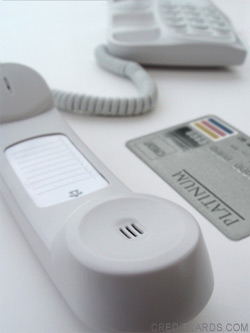|
Merchant Account Guide > Merchant Account News > How to pick a payment gateway provider
 Print  Email
How to pick a payment gateway provider
A payment gateway is an application used in electronic commerce that acts as an intermediary between the merchant's shopping cart and the financial networks involved during an online transaction.

The payment gateway authorizes and processes the customer's electronic payment, checking for things such as credit card validity, data encryption and correct bank account information. You need a payment gateway on your Web site to perform credit card processing and accept online payments.
The payment gateway process works this way:
- A customer visits your Web site and clicks on one of your products' "buy me" icons.
- The selected product is added to the online shopping cart.
- Upon checkout, the customer's personal and financial information is recorded on a secure form.
- Encrypted customer information is transmitted by the payment gateway to your merchant bank processor, after which it goes to the credit card processor.
- The credit card processor verifies the customer's information and availability of funds with the credit card issuer.
- The credit card issuer will approve or decline the transaction, and send these results to the credit card processor.
- The credit card processor forwards the transaction information to your merchant bank processor, which then forwards it to your payment gateway service. If the transaction has been approved, the payment gateway authorizes the transaction and stores the transaction details.
- The transaction is complete once the credit card issuer sends the funds to the credit card processor, which deposits them into its own merchant bank account.
There are many payment gateway providers on the market. To select the right one for your business, do your research and find out the following:
-
Gateway compatibility. If you already own a shopping cart application, make sure that the payment gateway is compatible with it. If you do not yet own a shopping cart application, find out which applications are supported by the payment gateway. Some payment gateways are compatible with very limited or expensive shopping cart applications.
- AVS protection. An address verification system (AVS) protects you from fraudulent transactions by verifying a customer's billing address with the credit card issuer. This is important because credit card chargebacks can cost you from $30 to $60 per incident.
- PCI-DSS compliance. The Payment Card Industry Data Security Standard (PCI-DSS) requires all merchants, including online merchants, to provide a secure network for the storage, processing and transmission of customer data. You may obtain a list of payment gateway providers that comply with the PCI-DSS from the PCI Web site.
- Multiple card/currency support. If you plan to offer your products internationally, your payment gateway must be equipped to accept different credit cards and currencies, as well as other methods of online payment.
Published: March 15,2025 Comments or Questions, Library of Stories
|




 Print
Print  Email
Email 